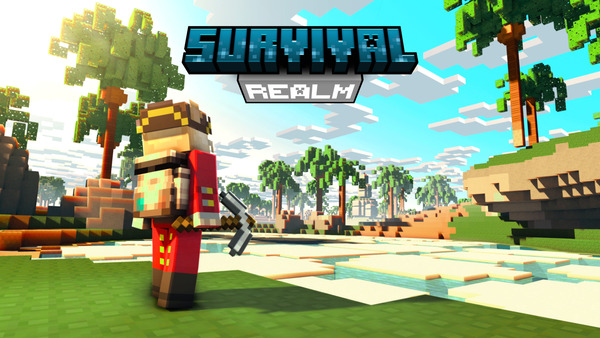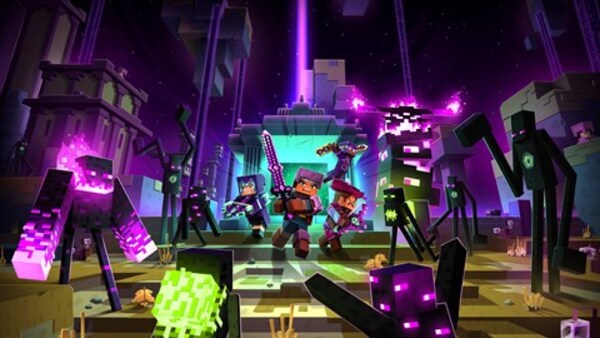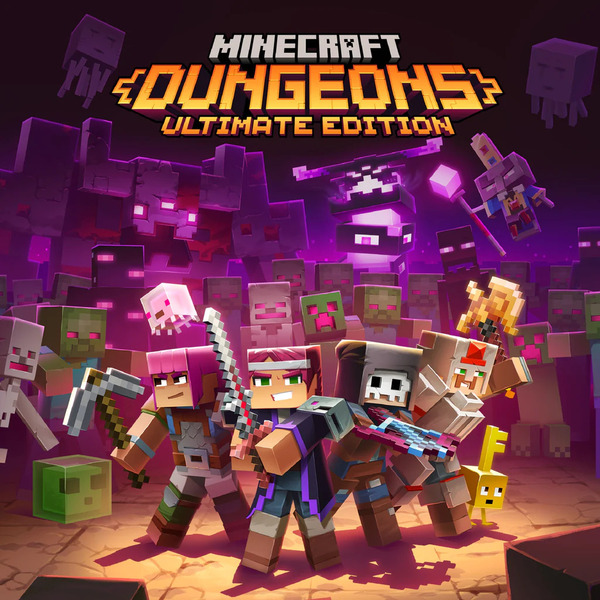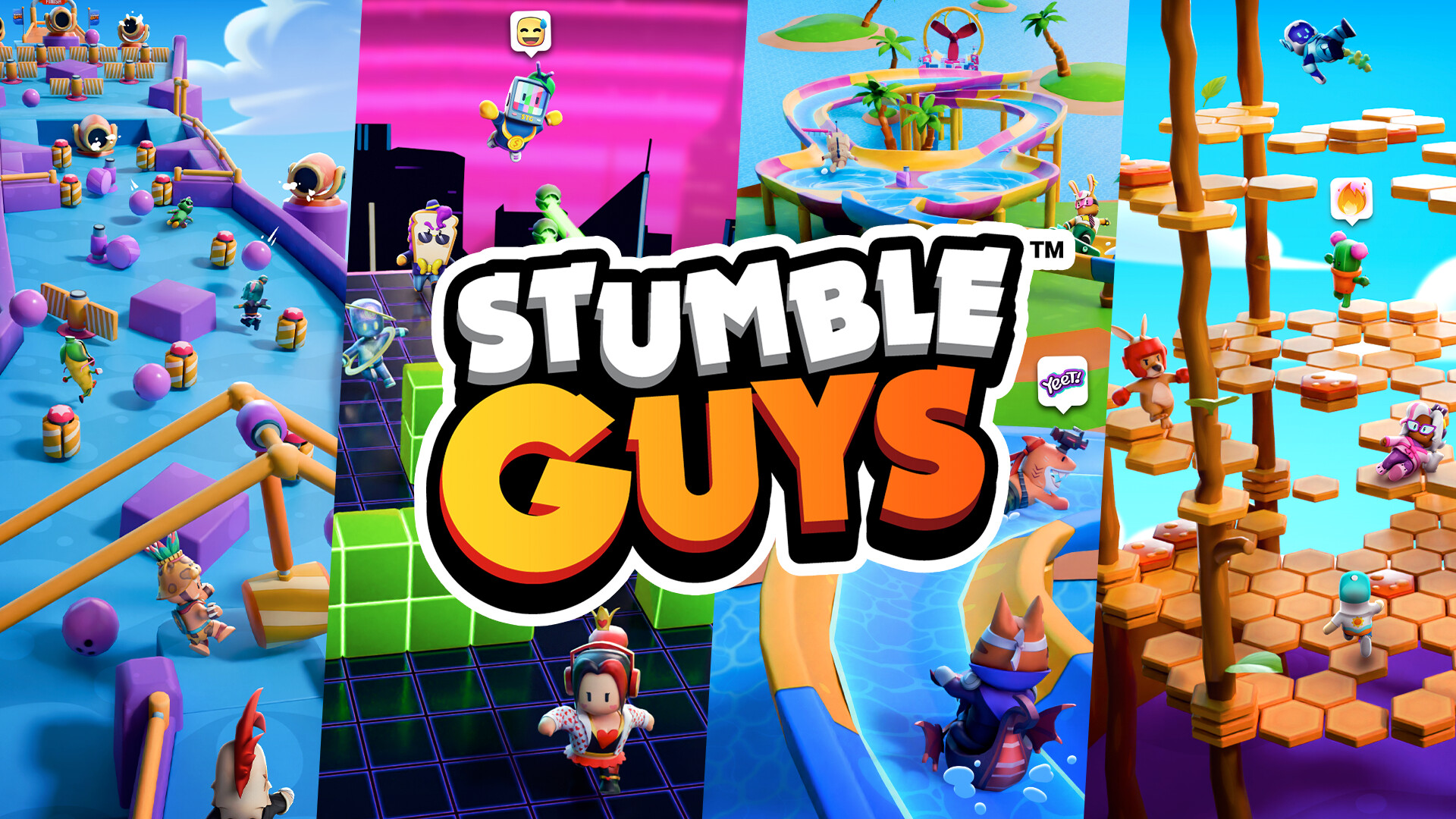Advertisement
Popular Now
Minecraft is more than just a game-it's a world where players can mine resources, build magnificent structures, and face challenges from mobs to hunger. Whether you’re playing in Survival mode, Creative mode, or multiplayer, knowing the right tips and strategies can greatly enhance your experience. In this guide, we’ll dive deep into the essential tips that will help both beginners and experienced players thrive in the blocky universe of Minecraft.
Starting Off: The First Day in Survival Mode
The first day in Minecraft Survival mode is crucial. Your ability to gather resources and find shelter determines your survival.
Gathering Essential Resources
Start by punching trees to gather wood, one of the most important resources in the game. Once you have enough wood, craft a crafting table and basic wooden tools like a pickaxe and axe. These tools will help you gather stone and other resources more quickly.
[caption id="attachment_1786" align="aligncenter" width="600"] Start by punching trees to gather wood, one of the most important resources in the game[/caption]
Crafting Initial Tools
Wooden Pickaxe: Essential for mining stone.
Wooden Axe: Speeds up wood collection.
Crafting Table: Allows access to crafting more complex items.
Finding or Building Shelter
By the end of your first day, you’ll need a safe place to avoid the hostile mobs that spawn at night. Look for natural shelters, such as caves, or build a quick dirt or wood hut. Ensure your shelter is well-lit with torches to prevent mobs from spawning inside.
Mining Tips: How to Find Resources Efficiently
Mining is one of the core activities in Minecraft. To progress in the game, you'll need to gather various minerals like coal, iron, and diamonds.
Effective Mining Techniques
The most popular mining technique is branch mining. Dig a straight tunnel at level 11 (or below) and create small branches every two blocks. This method increases your chances of finding valuable resources like diamonds and redstone.
Exploring Caves for Resources
Caves can be dangerous, but they also offer quick access to minerals. Always bring torches, weapons, and food when exploring caves. Make sure to light up dark areas to prevent mob spawns.
Smelting and Crafting Better Tools
Once you have gathered iron ore, smelt it in a furnace to create iron ingots. Iron tools are much more durable than wooden or stone tools and will allow you to mine tougher materials, like diamonds and obsidian.
Farming for Food and Resources
To survive long-term, you’ll need a sustainable source of food. Farming is essential for maintaining health and hunger levels.
Starting a Basic Farm
Begin by tilling grass blocks with a hoe to create farmland. Plant seeds, such as wheat, carrots, or potatoes, near a water source to help them grow faster. Over time, expand your farm to include different crops and even animals.
Breeding Animals
Breeding animals like cows, chickens, and pigs is a great way to generate food and materials. Use wheat to breed cows and sheep, carrots for pigs, and seeds for chickens. Over time, you’ll have a steady supply of food and resources like leather, wool, and eggs.
Harvesting and Storing Food
Once your crops are fully grown, harvest them and replant seeds. Build a storage system, like chests, to store extra food for when you go exploring or mining.
Combat Tips: Fighting Mobs and Staying Safe
Minecraft features a variety of hostile mobs, including zombies, skeletons, creepers, and spiders. Knowing how to combat them effectively is key to survival.
Weapon Crafting and Armor
Start by crafting a sword or an axe to defend yourself. Stone and iron weapons are good early-game tools for combat. As soon as possible, craft armor out of iron, which provides better protection from enemy attacks.
Defending Against Mobs
Mobs typically spawn at night or in dark areas, so ensure your base is well-lit. When fighting mobs, keep your distance from creepers to avoid their explosions and use a bow and arrows to deal with skeletons from afar.
Building Defenses
Building walls, moats, or even setting up traps around your base can prevent mobs from getting too close. You can also create a secure area with fences or gates for additional safety.
Redstone Mechanics: Building Automation
Redstone is Minecraft’s equivalent of electrical wiring. It allows you to create automated systems, from simple doors to complex machines.
Basic Redstone Contraptions
Start small by creating basic contraptions, such as doors that open with pressure plates or levers. You can also craft automatic farms or smelters, which make repetitive tasks more efficient.
Building Redstone Circuits
Understanding how to build basic redstone circuits, like repeaters and comparators, can help you create more complex systems. Practice building redstone traps, hidden doors, and item sorting systems to improve your redstone knowledge.
Exploring Biomes: Tips for Navigation and Survival
Minecraft features numerous biomes, from forests and deserts to oceans and snowy tundras. Each biome offers unique resources and challenges.
[caption id="attachment_1787" align="aligncenter" width="600"]
Start by punching trees to gather wood, one of the most important resources in the game[/caption]
Crafting Initial Tools
Wooden Pickaxe: Essential for mining stone.
Wooden Axe: Speeds up wood collection.
Crafting Table: Allows access to crafting more complex items.
Finding or Building Shelter
By the end of your first day, you’ll need a safe place to avoid the hostile mobs that spawn at night. Look for natural shelters, such as caves, or build a quick dirt or wood hut. Ensure your shelter is well-lit with torches to prevent mobs from spawning inside.
Mining Tips: How to Find Resources Efficiently
Mining is one of the core activities in Minecraft. To progress in the game, you'll need to gather various minerals like coal, iron, and diamonds.
Effective Mining Techniques
The most popular mining technique is branch mining. Dig a straight tunnel at level 11 (or below) and create small branches every two blocks. This method increases your chances of finding valuable resources like diamonds and redstone.
Exploring Caves for Resources
Caves can be dangerous, but they also offer quick access to minerals. Always bring torches, weapons, and food when exploring caves. Make sure to light up dark areas to prevent mob spawns.
Smelting and Crafting Better Tools
Once you have gathered iron ore, smelt it in a furnace to create iron ingots. Iron tools are much more durable than wooden or stone tools and will allow you to mine tougher materials, like diamonds and obsidian.
Farming for Food and Resources
To survive long-term, you’ll need a sustainable source of food. Farming is essential for maintaining health and hunger levels.
Starting a Basic Farm
Begin by tilling grass blocks with a hoe to create farmland. Plant seeds, such as wheat, carrots, or potatoes, near a water source to help them grow faster. Over time, expand your farm to include different crops and even animals.
Breeding Animals
Breeding animals like cows, chickens, and pigs is a great way to generate food and materials. Use wheat to breed cows and sheep, carrots for pigs, and seeds for chickens. Over time, you’ll have a steady supply of food and resources like leather, wool, and eggs.
Harvesting and Storing Food
Once your crops are fully grown, harvest them and replant seeds. Build a storage system, like chests, to store extra food for when you go exploring or mining.
Combat Tips: Fighting Mobs and Staying Safe
Minecraft features a variety of hostile mobs, including zombies, skeletons, creepers, and spiders. Knowing how to combat them effectively is key to survival.
Weapon Crafting and Armor
Start by crafting a sword or an axe to defend yourself. Stone and iron weapons are good early-game tools for combat. As soon as possible, craft armor out of iron, which provides better protection from enemy attacks.
Defending Against Mobs
Mobs typically spawn at night or in dark areas, so ensure your base is well-lit. When fighting mobs, keep your distance from creepers to avoid their explosions and use a bow and arrows to deal with skeletons from afar.
Building Defenses
Building walls, moats, or even setting up traps around your base can prevent mobs from getting too close. You can also create a secure area with fences or gates for additional safety.
Redstone Mechanics: Building Automation
Redstone is Minecraft’s equivalent of electrical wiring. It allows you to create automated systems, from simple doors to complex machines.
Basic Redstone Contraptions
Start small by creating basic contraptions, such as doors that open with pressure plates or levers. You can also craft automatic farms or smelters, which make repetitive tasks more efficient.
Building Redstone Circuits
Understanding how to build basic redstone circuits, like repeaters and comparators, can help you create more complex systems. Practice building redstone traps, hidden doors, and item sorting systems to improve your redstone knowledge.
Exploring Biomes: Tips for Navigation and Survival
Minecraft features numerous biomes, from forests and deserts to oceans and snowy tundras. Each biome offers unique resources and challenges.
[caption id="attachment_1787" align="aligncenter" width="600"] To survive long-term, you’ll need a sustainable source of food[/caption]
Preparing for Exploration
Before exploring new biomes, gather essential supplies like food, weapons, torches, and a map. It’s also a good idea to craft a bed and set it as your spawn point in case you die far from home.
Understanding Biome-Specific Resources
Different biomes provide different resources. For example, deserts have temples with treasure, while forests are rich in wood and wildlife. In colder biomes, you'll find ice, snow, and wolves that can be tamed as companions.
Surviving Harsh Biomes
Deserts and snowy biomes can be tricky to navigate due to the lack of food sources. Bring extra supplies and be cautious of natural hazards like lava pools or ice traps.
Enchanting and Brewing: Boosting Your Abilities
Enchanting your tools and brewing potions can greatly enhance your survival and combat abilities.
Crafting an Enchanting Table
To enchant items, craft an enchanting table using obsidian, diamonds, and a book. Place bookshelves around the table to increase the power of your enchantments. Use lapis lazuli to apply enchantments to your tools, weapons, and armor.
Useful Enchantments
Efficiency: Speeds up mining and gathering.
Protection: Reduces damage from attacks.
Unbreaking: Increases the durability of tools and armor.
Brewing Potions
Brewing potions requires a brewing stand, which can be crafted using blaze rods. Collect ingredients such as nether wart, sugar, and spider eyes to brew potions that enhance health, strength, and speed.
The Nether and The End: Preparing for Boss Battles
The Nether and The End are dangerous dimensions in Minecraft, filled with tough enemies and valuable resources.
Accessing the Nether
To access the Nether, create a portal using obsidian blocks and light it with flint and steel. Be prepared with armor, weapons, and plenty of food, as the Nether is home to powerful mobs like ghasts and wither skeletons.
Defeating the Ender Dragon
The Ender Dragon is the final boss of Minecraft. To reach The End, you’ll need to find a stronghold using Eye of Enders and activate the End portal. Bring enchanted gear, potions, and plenty of arrows to take down the dragon.
Building Megastructures: Advanced Construction Tips
Once you’ve mastered the basics, building megastructures like castles, cities, or intricate redstone machines is the next step.
Planning Large Builds
Before starting a large build, gather enough materials and plan your design. You can sketch out your structure or use blueprints to guide you. Start with the foundation and gradually work your way up to ensure stability and symmetry.
Utilizing Different Blocks for Detail
Experiment with different block types and textures to add detail to your builds. Use stairs, slabs, and fences to create depth and add visual interest to your structures.
Team Builds in Multiplayer
In multiplayer mode, consider collaborating with other players to complete large builds more efficiently. Divide tasks and communicate clearly to create impressive structures as a team.
Multiplayer Tips: Thriving in Online Servers
Minecraft offers a vibrant multiplayer experience, allowing you to play with others in creative or survival modes.
Joining a Server
To join a multiplayer server, browse server listings for games that suit your playstyle. Popular server types include faction-based PvP, minigame servers, and cooperative survival worlds.
Collaborating and Trading with Players
Form alliances with other players to gather resources more efficiently. Many servers offer trading systems where players can exchange goods and resources. Cooperation can make complex builds or survival challenges easier to manage.
[caption id="attachment_1788" align="aligncenter" width="600"]
To survive long-term, you’ll need a sustainable source of food[/caption]
Preparing for Exploration
Before exploring new biomes, gather essential supplies like food, weapons, torches, and a map. It’s also a good idea to craft a bed and set it as your spawn point in case you die far from home.
Understanding Biome-Specific Resources
Different biomes provide different resources. For example, deserts have temples with treasure, while forests are rich in wood and wildlife. In colder biomes, you'll find ice, snow, and wolves that can be tamed as companions.
Surviving Harsh Biomes
Deserts and snowy biomes can be tricky to navigate due to the lack of food sources. Bring extra supplies and be cautious of natural hazards like lava pools or ice traps.
Enchanting and Brewing: Boosting Your Abilities
Enchanting your tools and brewing potions can greatly enhance your survival and combat abilities.
Crafting an Enchanting Table
To enchant items, craft an enchanting table using obsidian, diamonds, and a book. Place bookshelves around the table to increase the power of your enchantments. Use lapis lazuli to apply enchantments to your tools, weapons, and armor.
Useful Enchantments
Efficiency: Speeds up mining and gathering.
Protection: Reduces damage from attacks.
Unbreaking: Increases the durability of tools and armor.
Brewing Potions
Brewing potions requires a brewing stand, which can be crafted using blaze rods. Collect ingredients such as nether wart, sugar, and spider eyes to brew potions that enhance health, strength, and speed.
The Nether and The End: Preparing for Boss Battles
The Nether and The End are dangerous dimensions in Minecraft, filled with tough enemies and valuable resources.
Accessing the Nether
To access the Nether, create a portal using obsidian blocks and light it with flint and steel. Be prepared with armor, weapons, and plenty of food, as the Nether is home to powerful mobs like ghasts and wither skeletons.
Defeating the Ender Dragon
The Ender Dragon is the final boss of Minecraft. To reach The End, you’ll need to find a stronghold using Eye of Enders and activate the End portal. Bring enchanted gear, potions, and plenty of arrows to take down the dragon.
Building Megastructures: Advanced Construction Tips
Once you’ve mastered the basics, building megastructures like castles, cities, or intricate redstone machines is the next step.
Planning Large Builds
Before starting a large build, gather enough materials and plan your design. You can sketch out your structure or use blueprints to guide you. Start with the foundation and gradually work your way up to ensure stability and symmetry.
Utilizing Different Blocks for Detail
Experiment with different block types and textures to add detail to your builds. Use stairs, slabs, and fences to create depth and add visual interest to your structures.
Team Builds in Multiplayer
In multiplayer mode, consider collaborating with other players to complete large builds more efficiently. Divide tasks and communicate clearly to create impressive structures as a team.
Multiplayer Tips: Thriving in Online Servers
Minecraft offers a vibrant multiplayer experience, allowing you to play with others in creative or survival modes.
Joining a Server
To join a multiplayer server, browse server listings for games that suit your playstyle. Popular server types include faction-based PvP, minigame servers, and cooperative survival worlds.
Collaborating and Trading with Players
Form alliances with other players to gather resources more efficiently. Many servers offer trading systems where players can exchange goods and resources. Cooperation can make complex builds or survival challenges easier to manage.
[caption id="attachment_1788" align="aligncenter" width="600"] To join a multiplayer server, browse server listings for games that suit your playstyle[/caption]
Conclusion: Becoming a Minecraft Expert
By mastering these tips, you'll be well on your way to becoming a Minecraft pro. From surviving the first night to building massive structures and exploring dangerous dimensions, Minecraft offers endless opportunities for creativity and adventure. With practice and a solid strategy, you can thrive in this blocky universe and make the most out of your gameplay.
To join a multiplayer server, browse server listings for games that suit your playstyle[/caption]
Conclusion: Becoming a Minecraft Expert
By mastering these tips, you'll be well on your way to becoming a Minecraft pro. From surviving the first night to building massive structures and exploring dangerous dimensions, Minecraft offers endless opportunities for creativity and adventure. With practice and a solid strategy, you can thrive in this blocky universe and make the most out of your gameplay.
 Start by punching trees to gather wood, one of the most important resources in the game[/caption]
Crafting Initial Tools
Wooden Pickaxe: Essential for mining stone.
Wooden Axe: Speeds up wood collection.
Crafting Table: Allows access to crafting more complex items.
Finding or Building Shelter
By the end of your first day, you’ll need a safe place to avoid the hostile mobs that spawn at night. Look for natural shelters, such as caves, or build a quick dirt or wood hut. Ensure your shelter is well-lit with torches to prevent mobs from spawning inside.
Mining Tips: How to Find Resources Efficiently
Mining is one of the core activities in Minecraft. To progress in the game, you'll need to gather various minerals like coal, iron, and diamonds.
Effective Mining Techniques
The most popular mining technique is branch mining. Dig a straight tunnel at level 11 (or below) and create small branches every two blocks. This method increases your chances of finding valuable resources like diamonds and redstone.
Exploring Caves for Resources
Caves can be dangerous, but they also offer quick access to minerals. Always bring torches, weapons, and food when exploring caves. Make sure to light up dark areas to prevent mob spawns.
Smelting and Crafting Better Tools
Once you have gathered iron ore, smelt it in a furnace to create iron ingots. Iron tools are much more durable than wooden or stone tools and will allow you to mine tougher materials, like diamonds and obsidian.
Farming for Food and Resources
To survive long-term, you’ll need a sustainable source of food. Farming is essential for maintaining health and hunger levels.
Starting a Basic Farm
Begin by tilling grass blocks with a hoe to create farmland. Plant seeds, such as wheat, carrots, or potatoes, near a water source to help them grow faster. Over time, expand your farm to include different crops and even animals.
Breeding Animals
Breeding animals like cows, chickens, and pigs is a great way to generate food and materials. Use wheat to breed cows and sheep, carrots for pigs, and seeds for chickens. Over time, you’ll have a steady supply of food and resources like leather, wool, and eggs.
Harvesting and Storing Food
Once your crops are fully grown, harvest them and replant seeds. Build a storage system, like chests, to store extra food for when you go exploring or mining.
Combat Tips: Fighting Mobs and Staying Safe
Minecraft features a variety of hostile mobs, including zombies, skeletons, creepers, and spiders. Knowing how to combat them effectively is key to survival.
Weapon Crafting and Armor
Start by crafting a sword or an axe to defend yourself. Stone and iron weapons are good early-game tools for combat. As soon as possible, craft armor out of iron, which provides better protection from enemy attacks.
Defending Against Mobs
Mobs typically spawn at night or in dark areas, so ensure your base is well-lit. When fighting mobs, keep your distance from creepers to avoid their explosions and use a bow and arrows to deal with skeletons from afar.
Building Defenses
Building walls, moats, or even setting up traps around your base can prevent mobs from getting too close. You can also create a secure area with fences or gates for additional safety.
Redstone Mechanics: Building Automation
Redstone is Minecraft’s equivalent of electrical wiring. It allows you to create automated systems, from simple doors to complex machines.
Basic Redstone Contraptions
Start small by creating basic contraptions, such as doors that open with pressure plates or levers. You can also craft automatic farms or smelters, which make repetitive tasks more efficient.
Building Redstone Circuits
Understanding how to build basic redstone circuits, like repeaters and comparators, can help you create more complex systems. Practice building redstone traps, hidden doors, and item sorting systems to improve your redstone knowledge.
Exploring Biomes: Tips for Navigation and Survival
Minecraft features numerous biomes, from forests and deserts to oceans and snowy tundras. Each biome offers unique resources and challenges.
[caption id="attachment_1787" align="aligncenter" width="600"]
Start by punching trees to gather wood, one of the most important resources in the game[/caption]
Crafting Initial Tools
Wooden Pickaxe: Essential for mining stone.
Wooden Axe: Speeds up wood collection.
Crafting Table: Allows access to crafting more complex items.
Finding or Building Shelter
By the end of your first day, you’ll need a safe place to avoid the hostile mobs that spawn at night. Look for natural shelters, such as caves, or build a quick dirt or wood hut. Ensure your shelter is well-lit with torches to prevent mobs from spawning inside.
Mining Tips: How to Find Resources Efficiently
Mining is one of the core activities in Minecraft. To progress in the game, you'll need to gather various minerals like coal, iron, and diamonds.
Effective Mining Techniques
The most popular mining technique is branch mining. Dig a straight tunnel at level 11 (or below) and create small branches every two blocks. This method increases your chances of finding valuable resources like diamonds and redstone.
Exploring Caves for Resources
Caves can be dangerous, but they also offer quick access to minerals. Always bring torches, weapons, and food when exploring caves. Make sure to light up dark areas to prevent mob spawns.
Smelting and Crafting Better Tools
Once you have gathered iron ore, smelt it in a furnace to create iron ingots. Iron tools are much more durable than wooden or stone tools and will allow you to mine tougher materials, like diamonds and obsidian.
Farming for Food and Resources
To survive long-term, you’ll need a sustainable source of food. Farming is essential for maintaining health and hunger levels.
Starting a Basic Farm
Begin by tilling grass blocks with a hoe to create farmland. Plant seeds, such as wheat, carrots, or potatoes, near a water source to help them grow faster. Over time, expand your farm to include different crops and even animals.
Breeding Animals
Breeding animals like cows, chickens, and pigs is a great way to generate food and materials. Use wheat to breed cows and sheep, carrots for pigs, and seeds for chickens. Over time, you’ll have a steady supply of food and resources like leather, wool, and eggs.
Harvesting and Storing Food
Once your crops are fully grown, harvest them and replant seeds. Build a storage system, like chests, to store extra food for when you go exploring or mining.
Combat Tips: Fighting Mobs and Staying Safe
Minecraft features a variety of hostile mobs, including zombies, skeletons, creepers, and spiders. Knowing how to combat them effectively is key to survival.
Weapon Crafting and Armor
Start by crafting a sword or an axe to defend yourself. Stone and iron weapons are good early-game tools for combat. As soon as possible, craft armor out of iron, which provides better protection from enemy attacks.
Defending Against Mobs
Mobs typically spawn at night or in dark areas, so ensure your base is well-lit. When fighting mobs, keep your distance from creepers to avoid their explosions and use a bow and arrows to deal with skeletons from afar.
Building Defenses
Building walls, moats, or even setting up traps around your base can prevent mobs from getting too close. You can also create a secure area with fences or gates for additional safety.
Redstone Mechanics: Building Automation
Redstone is Minecraft’s equivalent of electrical wiring. It allows you to create automated systems, from simple doors to complex machines.
Basic Redstone Contraptions
Start small by creating basic contraptions, such as doors that open with pressure plates or levers. You can also craft automatic farms or smelters, which make repetitive tasks more efficient.
Building Redstone Circuits
Understanding how to build basic redstone circuits, like repeaters and comparators, can help you create more complex systems. Practice building redstone traps, hidden doors, and item sorting systems to improve your redstone knowledge.
Exploring Biomes: Tips for Navigation and Survival
Minecraft features numerous biomes, from forests and deserts to oceans and snowy tundras. Each biome offers unique resources and challenges.
[caption id="attachment_1787" align="aligncenter" width="600"] To survive long-term, you’ll need a sustainable source of food[/caption]
Preparing for Exploration
Before exploring new biomes, gather essential supplies like food, weapons, torches, and a map. It’s also a good idea to craft a bed and set it as your spawn point in case you die far from home.
Understanding Biome-Specific Resources
Different biomes provide different resources. For example, deserts have temples with treasure, while forests are rich in wood and wildlife. In colder biomes, you'll find ice, snow, and wolves that can be tamed as companions.
Surviving Harsh Biomes
Deserts and snowy biomes can be tricky to navigate due to the lack of food sources. Bring extra supplies and be cautious of natural hazards like lava pools or ice traps.
Enchanting and Brewing: Boosting Your Abilities
Enchanting your tools and brewing potions can greatly enhance your survival and combat abilities.
Crafting an Enchanting Table
To enchant items, craft an enchanting table using obsidian, diamonds, and a book. Place bookshelves around the table to increase the power of your enchantments. Use lapis lazuli to apply enchantments to your tools, weapons, and armor.
Useful Enchantments
Efficiency: Speeds up mining and gathering.
Protection: Reduces damage from attacks.
Unbreaking: Increases the durability of tools and armor.
Brewing Potions
Brewing potions requires a brewing stand, which can be crafted using blaze rods. Collect ingredients such as nether wart, sugar, and spider eyes to brew potions that enhance health, strength, and speed.
The Nether and The End: Preparing for Boss Battles
The Nether and The End are dangerous dimensions in Minecraft, filled with tough enemies and valuable resources.
Accessing the Nether
To access the Nether, create a portal using obsidian blocks and light it with flint and steel. Be prepared with armor, weapons, and plenty of food, as the Nether is home to powerful mobs like ghasts and wither skeletons.
Defeating the Ender Dragon
The Ender Dragon is the final boss of Minecraft. To reach The End, you’ll need to find a stronghold using Eye of Enders and activate the End portal. Bring enchanted gear, potions, and plenty of arrows to take down the dragon.
Building Megastructures: Advanced Construction Tips
Once you’ve mastered the basics, building megastructures like castles, cities, or intricate redstone machines is the next step.
Planning Large Builds
Before starting a large build, gather enough materials and plan your design. You can sketch out your structure or use blueprints to guide you. Start with the foundation and gradually work your way up to ensure stability and symmetry.
Utilizing Different Blocks for Detail
Experiment with different block types and textures to add detail to your builds. Use stairs, slabs, and fences to create depth and add visual interest to your structures.
Team Builds in Multiplayer
In multiplayer mode, consider collaborating with other players to complete large builds more efficiently. Divide tasks and communicate clearly to create impressive structures as a team.
Multiplayer Tips: Thriving in Online Servers
Minecraft offers a vibrant multiplayer experience, allowing you to play with others in creative or survival modes.
Joining a Server
To join a multiplayer server, browse server listings for games that suit your playstyle. Popular server types include faction-based PvP, minigame servers, and cooperative survival worlds.
Collaborating and Trading with Players
Form alliances with other players to gather resources more efficiently. Many servers offer trading systems where players can exchange goods and resources. Cooperation can make complex builds or survival challenges easier to manage.
[caption id="attachment_1788" align="aligncenter" width="600"]
To survive long-term, you’ll need a sustainable source of food[/caption]
Preparing for Exploration
Before exploring new biomes, gather essential supplies like food, weapons, torches, and a map. It’s also a good idea to craft a bed and set it as your spawn point in case you die far from home.
Understanding Biome-Specific Resources
Different biomes provide different resources. For example, deserts have temples with treasure, while forests are rich in wood and wildlife. In colder biomes, you'll find ice, snow, and wolves that can be tamed as companions.
Surviving Harsh Biomes
Deserts and snowy biomes can be tricky to navigate due to the lack of food sources. Bring extra supplies and be cautious of natural hazards like lava pools or ice traps.
Enchanting and Brewing: Boosting Your Abilities
Enchanting your tools and brewing potions can greatly enhance your survival and combat abilities.
Crafting an Enchanting Table
To enchant items, craft an enchanting table using obsidian, diamonds, and a book. Place bookshelves around the table to increase the power of your enchantments. Use lapis lazuli to apply enchantments to your tools, weapons, and armor.
Useful Enchantments
Efficiency: Speeds up mining and gathering.
Protection: Reduces damage from attacks.
Unbreaking: Increases the durability of tools and armor.
Brewing Potions
Brewing potions requires a brewing stand, which can be crafted using blaze rods. Collect ingredients such as nether wart, sugar, and spider eyes to brew potions that enhance health, strength, and speed.
The Nether and The End: Preparing for Boss Battles
The Nether and The End are dangerous dimensions in Minecraft, filled with tough enemies and valuable resources.
Accessing the Nether
To access the Nether, create a portal using obsidian blocks and light it with flint and steel. Be prepared with armor, weapons, and plenty of food, as the Nether is home to powerful mobs like ghasts and wither skeletons.
Defeating the Ender Dragon
The Ender Dragon is the final boss of Minecraft. To reach The End, you’ll need to find a stronghold using Eye of Enders and activate the End portal. Bring enchanted gear, potions, and plenty of arrows to take down the dragon.
Building Megastructures: Advanced Construction Tips
Once you’ve mastered the basics, building megastructures like castles, cities, or intricate redstone machines is the next step.
Planning Large Builds
Before starting a large build, gather enough materials and plan your design. You can sketch out your structure or use blueprints to guide you. Start with the foundation and gradually work your way up to ensure stability and symmetry.
Utilizing Different Blocks for Detail
Experiment with different block types and textures to add detail to your builds. Use stairs, slabs, and fences to create depth and add visual interest to your structures.
Team Builds in Multiplayer
In multiplayer mode, consider collaborating with other players to complete large builds more efficiently. Divide tasks and communicate clearly to create impressive structures as a team.
Multiplayer Tips: Thriving in Online Servers
Minecraft offers a vibrant multiplayer experience, allowing you to play with others in creative or survival modes.
Joining a Server
To join a multiplayer server, browse server listings for games that suit your playstyle. Popular server types include faction-based PvP, minigame servers, and cooperative survival worlds.
Collaborating and Trading with Players
Form alliances with other players to gather resources more efficiently. Many servers offer trading systems where players can exchange goods and resources. Cooperation can make complex builds or survival challenges easier to manage.
[caption id="attachment_1788" align="aligncenter" width="600"] To join a multiplayer server, browse server listings for games that suit your playstyle[/caption]
Conclusion: Becoming a Minecraft Expert
By mastering these tips, you'll be well on your way to becoming a Minecraft pro. From surviving the first night to building massive structures and exploring dangerous dimensions, Minecraft offers endless opportunities for creativity and adventure. With practice and a solid strategy, you can thrive in this blocky universe and make the most out of your gameplay.
To join a multiplayer server, browse server listings for games that suit your playstyle[/caption]
Conclusion: Becoming a Minecraft Expert
By mastering these tips, you'll be well on your way to becoming a Minecraft pro. From surviving the first night to building massive structures and exploring dangerous dimensions, Minecraft offers endless opportunities for creativity and adventure. With practice and a solid strategy, you can thrive in this blocky universe and make the most out of your gameplay. 















